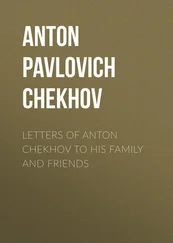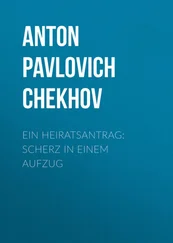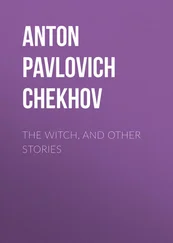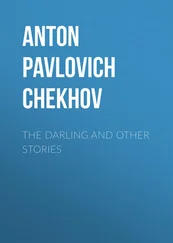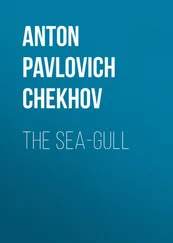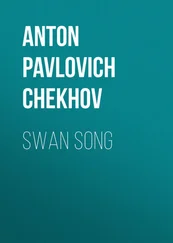Donald Rayfield - Anton Chekhov. A life
Здесь есть возможность читать онлайн «Donald Rayfield - Anton Chekhov. A life» весь текст электронной книги совершенно бесплатно (целиком полную версию без сокращений). В некоторых случаях можно слушать аудио, скачать через торрент в формате fb2 и присутствует краткое содержание. Жанр: Биографии и Мемуары, на английском языке. Описание произведения, (предисловие) а так же отзывы посетителей доступны на портале библиотеки ЛибКат.
- Название:Anton Chekhov. A life
- Автор:
- Жанр:
- Год:неизвестен
- ISBN:нет данных
- Рейтинг книги:5 / 5. Голосов: 1
-
Избранное:Добавить в избранное
- Отзывы:
-
Ваша оценка:
- 100
- 1
- 2
- 3
- 4
- 5
Anton Chekhov. A life: краткое содержание, описание и аннотация
Предлагаем к чтению аннотацию, описание, краткое содержание или предисловие (зависит от того, что написал сам автор книги «Anton Chekhov. A life»). Если вы не нашли необходимую информацию о книге — напишите в комментариях, мы постараемся отыскать её.
Anton Chekhov. A life — читать онлайн бесплатно полную книгу (весь текст) целиком
Ниже представлен текст книги, разбитый по страницам. Система сохранения места последней прочитанной страницы, позволяет с удобством читать онлайн бесплатно книгу «Anton Chekhov. A life», без необходимости каждый раз заново искать на чём Вы остановились. Поставьте закладку, и сможете в любой момент перейти на страницу, на которой закончили чтение.
Интервал:
Закладка:
I remember him once running in to see my aunt asking for some vinegar to rub himself with and when she asked questions, he flapped his arms at her, tears in his eyes and quickly ran aw… Kolia died of ÒÂ before he could write any more. Uncle Vania died of ÒÂ shortly after the vinegar incident.
Aleksandr also recalled the toy Vaska and the shared bed. Aleksandr had often been left in charge of Anton: he remembered the infant Anton straining on his pot, shouting to Aleksandr to 'get a stick, get a stick' to help him: But sensing my inability to help you, I got nastier and nastier and finally pinched you as painfully and viciously as I could. You 'let rip' and I reported to mama when she came to your yelling, as if butter wouldn't melt in my mouth, that it was all your fault, not mine.12 When Anton was aged about ten, the scales of dominance swung the other way. For a decade he and his eldest brother jostled for power until Anton became the effective head of the family. Aleksandr recalls his first defeat when they were left minding the stall by the railway station: li 1
1 1
I Ë I 11 I Ê I (» lilt MAN You were chanting 'Bang your head, \ãìù your head, drop dead!'… I banged you on the head with a piece ol corrugated iron. You left the shop and went to see father. I expected a severe thrashing, but a few hours later you majestically walked past the door of my stall, accompanied by the shop-boy Gavriusha, on some mission for father and purposely did not look at me. I watched you walking off for a long time and, I don't know why, burst into tears. Anton's earliest years were spent more with the clan than the family. When he was six, the family moved in with Mitrofan and Liudmila, while Aleksandr spent two or three years living with Fenichka. The Chekhov and Morozov marriages tied Pavel and Evgenia to several Taganrog families, both rich and poor. A number of Russified Greek families were related to the Chekhov clan: godparents, and the Kam-burovs, close neighbours on Politseiskaia street, rich merchants whose Russian bourgeois veneer was skin-deep, for old man Kamburov would curse the children, 'Fuck your mother', in a thick Greek accent. They combined Mediterranean temperament with liberal Russian mores: their daughters Liubov and Liudmila Kamburova were much in demand. In such milieus Aleksandr's and Kolia's schoolboy romances began - hence the command of demotic Greek that Aleksandr retained, and the Taganrog urban jargon which he used in his letters. Taganrog's Greeks called Aleksandr 'lucky Sasa' for his fluency.13
The first eight years of Anton's life were punctuated by family name days and Church feasts, particularly Easter, which Pavel observed with zeal. Everyday life was freer: in school holidays he and Kolia could follow Aleksandr around Taganrog, catching fish in the smuggler's bay of Bogudonie, trapping finches in wasteland to sell for kopecks, watching convict gangs catching stray dogs with hooks and clubbing them to death, coming home in the evenings covered with lime and dust or mud. i?•
THREE Ô
Shop, Church and School
1868-9
PAVEL CHEKHOV was a bad merchant, taking too much pleasure in calligraphy, copying out price lists, inventories and lists of creditors. He turned his shop into a forum for endless moralizing with customers, a club where they could gossip over a glass of wine or tea. Church music was his opening into Taganrog society. Pavel had an unbounded passion for sung services. Despite limited training and ability, he became the regent (kapellmeister) of the cathedral choir in 1864, after years as an amateur. He refused to omit a bar of music or a word of the liturgy; cathedral services became interminable. Parishioners and clergy asked Evgenia to persuade him to shorten them, but Pavel never compromised over his favourite quality 'splendour'. In 1867 he was dismissed.
Pavel moved to the Greek monastery, which, to broaden its congregation, now held services in Russian. The Greek clergy had little Russian and needed a Russian cantor. Pavel formed a choir of blacksmiths, whose powerful bellows-lungs made them strong, rough, basses and baritones. Pavel's choir lacked altos and sopranos. He rehearsed with two young Taganrog ladies, but their nerves led to a calamity, and the blacksmiths had to take over. Pavel renounced female singers and recruited his three eldest sons. Aleksandtf recalled 'the doctor who treated our family protested at this premature violence to my infant chest and vocal cords'.14 For years church singing became torture, especially at Easter, when the boys were hauled out of bed on a freezing morning for early matins. They would sing at two more long services in the day, before rehearsing all evening in the shop, under a choirmaster who thrashed them. During his adult life, right up until his death, Anton would rarely spend an Easter night in bed; instead he would wander the streets, listening to the church bells. The congregation's wonderment at the sight of Aleksandr, Kolia and
J3
1 Ë I III II I î I II I MAN Anton, on their knees on the freezing stones, singing the three-part Motet of the Robber on the Cross, was not shared by the singers. Anton Chekhov recalled that they 'felt like little convicts', kneeling, worrying that the holes in their shoes were visible. Joys were few: watching merlins nesting in the bell-tower, an uncalled-for crescendo or peel of bells as their mother entered. The music, but not the doctrines of the Christian church, entered Anton's blood: 'The Church bells of Easter Sunday are all that I have left of religion,' he was to tell his schoolfriend, later the actor, Aleksandr Vishnevsky. To another writer, Shcheglov, he confessed in 1892: 'In my childhood I had a religious education and a religious upbringing… And the result? When I recall my childhood I now find it rather gloomy; I now have no religion.'
In 1872 the Greek monastery church had a new priest who had no command of Russian, and Pavel's Russian choir was dismissed. The church that stood in the new Taganrog market, where Pavel, his blacksmiths and his fellow merchants worshipped and sang, had a paid professional choir. Only in the chapel of Tsar Alexander's 'palace' could Pavel display his family 'trio'.
The doctor may well have been right to blame the ill health of the three eldest Chekhov boys on those early services and late rehearsals. The positive side was that Anton's mind was saturated with the Church Slavonic language of the psalms, of the Orthodox free-verse psalmodic variations known as akafisty. His love of Russian church music long outlasted his faith in God, though he could only sing, or pick out a tune on a piano with one finger. Kolia, on the other hand, played the violin and piano, the latter with what a professional witness called virtuosity. In his brief prosperity in the late 1860s and early 1870s Pavel hired both a music teacher and a French teacher for his children. Both Aleksandr and Kolia acquired fluent French, whereas Anton's foreign languages, like his musical talents, remained undeveloped.
Aleksandr was a star pupil at Taganrog gimnazia [grammar school]. Pavel wavered about Kolia and Anton. Greek customers persuaded him that prosperity lay with a job as a broker in a Greek trading firm. This future 1500 roubles a year salary required a command of demotic Greek. When a debt of 100 roubles was unexpectedly paid, Pavel invested in Kolia's and Anton's education. For modern Greek, a child had to attend the parish school attached to the Greek Church of
1868-9
St Constantine and St Helen. (Aleksandr had two or three years earlier picked up Greek at this school.) The school, where 'Nikolaos and Antonos Tsechoph' were enrolled in September 1867, was a Dothe-boys Hall. In one large room with five long wooden benches one teacher, Nikolaos Voutzinas, took five classes simultaneously, starting with the alphabet and ending with syntax and history. In each corner of the schoolroom was an iron semicircle where an older pupil would test and punish pupils of a lower form, who were each sold a tatty primer. Aleksandr and Anton never forgot Voutzinas' catch phrase: 'Their parents will pay for everything.' Voutzinas would periodically disappear to his private quarters, where a Ukrainian housekeeper met his needs. (It is said he also raped a Greek boy there.) His red beard, loud voice and metal ruler restored order when he reappeared. Voutzinas devised a number of tortures, including strapping a boy to a stepladder to be spat at by the class. The fees, however, were modest, and the boys needed no uniform.
Читать дальшеИнтервал:
Закладка:
Похожие книги на «Anton Chekhov. A life»
Представляем Вашему вниманию похожие книги на «Anton Chekhov. A life» списком для выбора. Мы отобрали схожую по названию и смыслу литературу в надежде предоставить читателям больше вариантов отыскать новые, интересные, ещё непрочитанные произведения.
Обсуждение, отзывы о книге «Anton Chekhov. A life» и просто собственные мнения читателей. Оставьте ваши комментарии, напишите, что Вы думаете о произведении, его смысле или главных героях. Укажите что конкретно понравилось, а что нет, и почему Вы так считаете.

